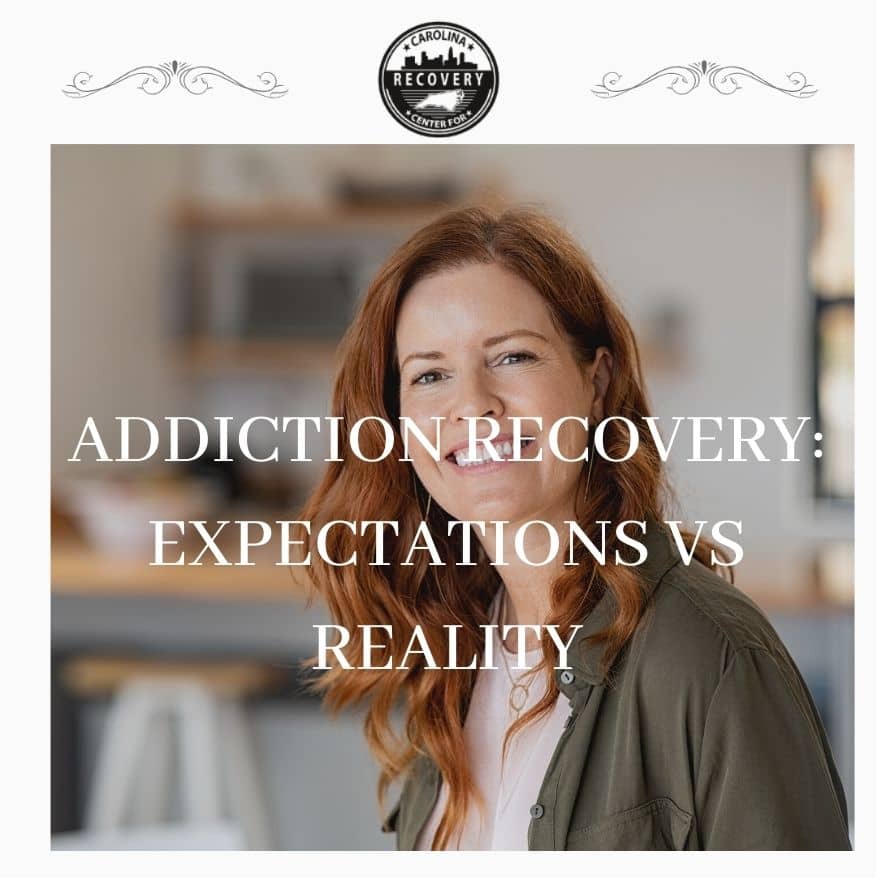Addiction Recovery: Expectations vs. Reality

Medically Verified: 2/1/24
Medical Reviewer
Chief Editor

All of the information on this page has been reviewed and verified by a certified addiction professional.
Addiction is a chronic and progressive disease that can negatively impact every aspect of your life. Unfortunately, this condition is extremely common in the United States. According to the National Institutes of Health (NIH), 10% of American adults have suffered from a drug use disorder at some point in their lives.
Deciding to attend addiction treatment and prioritize your recovery is one of the most important choices you can make. However, many people go into treatment with unrealistic expectations about how rehab works and what recovery looks like. For example, some people believe that going to rehab will cure their addiction once and for all when really treatment just teaches you how to cope with your substance use disorder and avoid relapsing.
Being aware of the unrealistic expectations and the realities of addiction recovery can help you understand the process of treatment and ensure that you know what to expect.
Expectation: All of my Problems Will Disappear
Many people believe that treating their substance abuse will cure all of the other issues they face in their life. While recovering from addiction will significantly improve a lot of aspects of your life, you will still have things to work on.
Reality: Problems still exist when you put the drugs down
Oftentimes addiction stems from underlying issues like mental health conditions or past traumas. Even after you recover from the substance abuse, you will have to work on healing from any issues in your past that might have contributed to the development of your addiction.
Expectation: After I Complete Treatment My Addiction Will Be Cured
This is similar to the first unrealistic expectation. Unfortunately, many people believe the misconception that addiction is a condition that can be cured. The truth is, substance use disorders are lifelong illnesses that must be routinely managed and treated to prevent relapses from occurring. This means that even after your complete addiction treatment, you will have to continue using the tools and practicing healthy coping mechanisms to remain healthy and sober.
Reality: Recovery is an ongoing process
Many people continue attending therapy, going to weekly addiction recovery support meetings, and engaging in healthy coping mechanisms like exercise, meditation, or yoga for the rest of their lives. However, you can come up with new and refreshing ways to maintain your recovery to prevent yourself from becoming bored or complacent.
Expectation: I Will Immediately Regain My Family’s Trust
One of the most damaging misconceptions about addiction recovery is that your family will immediately begin to trust you again, or strained relationships will magically fix themselves. While this is a nice sentiment, human relationships are too complex to resolve that quickly.
Reality: Trust takes time
Your loved ones watched you go down a dark path, abusing substances and experiencing behavioral changes. While you never meant to hurt anyone other than yourself, your behaviors affected your family members and friends negatively. Because of this, mending those relationships often takes time and effort.
It is important to note that simply going to rehab usually significantly improves the trust your family feels for you. But, you must continue to prove your commitment to recovery and mending relationships for your family to fully regain trust.
Expectation: My Recovery Will Look the Same as Everyone Else’s
Another damaging misconception is that everyone’s recovery looks the same. People tend to base their ideas on what recovery looks like on TV shows and movies, where you always see people sharing their stories in 12-step support groups.
While many people do take the same path in addiction recovery, everyone has different experiences and sees things through a different lens. This means that each person’s journey in recovery will be different from the next. In other words, not everyone uses the same techniques or coping mechanisms to maintain their sobriety.
Reality: Everyone’s recovery looks different
Any form of addiction recovery is valid, as long as you are healthy, safe, happy, and sober. If 12-step groups do not work for you, there are plenty of other addiction recovery groups to choose from. Additionally, if you have a hard time remaining sober, you may find success in medication-assisted treatment (MAT) programs.
Expectation: Life Will Be Boring After I Stop Abusing Drugs and Alcohol
Many people worry that after they stop using drugs, drinking alcohol, and living the life that comes with addiction, their life will be boring and mundane.
Reality: You can have fun in sobriety
While you may have to abstain from going to parties or bars in the early stages of recovery, there are many ways to have fun as a sober individual. Oftentimes, addiction treatment facilities offer alumni programs where you can attend events and have fun with other people who are also recovering from substance abuse.
It is also important to note that while you should avoid triggers early on in your recovery, once you are secure you can attend parties and meet your friends at a bar. After some time, your cravings will disappear and only occur when you have experienced a trigger. Even further, eventually, you will be able to overcome triggers with ease, allowing you to have fun in environments where alcohol is present without feeling the need to abuse substances.
Start Your Recovery Today
If you or a loved one suffer from drug or alcohol addiction, recovery is possible. While there are many misconceptions about addiction recovery, it is important to be aware of the truth. Addiction is a lifelong condition that requires constant management and support, however, you can live a full and happy life as a sober individual.
To learn more about the addiction recovery process and how rehab works, contact Carolina Center for Recovery today.

